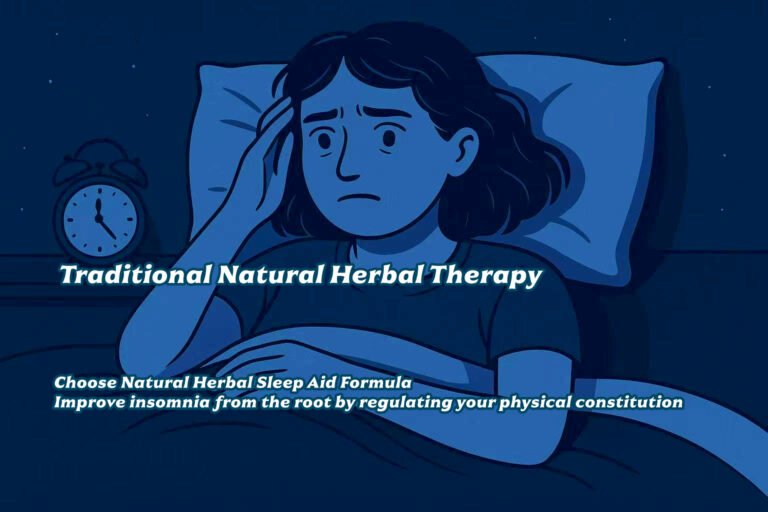can’t sleep at night anxiety–How to fall asleep
At three in the morning, I sat up in bed again, staring out the window at the dim city lights, tears streaming silently. This was my tenth year of suffering from insomnia. From initial indifference to the unbearable pain that followed, I finally understood how important sleep is to a person.
What are the specific symptoms of insomnia?
— Insomnia: Inability to fall asleep, waking up early, waking up two or more times, being unable to fall asleep immediately after waking, having trouble falling into deep sleep, dreaming all night and feeling dizzy the next day…
I. The “Darkest Moment” of Ten Years of Insomnia: From the early morning tears to the diagnosis, I once thought I’d never sleep well again.
Between the ages of 19 and 25, I took advantage of my youth and squandered my health. I stayed up late every night watching American dramas and variety shows, often staying up until 2 or 3 a.m. I’d force myself to go to school or work the next morning, and on weekends, I’d catch up on sleep, falling asleep in the wee hours and sleeping through the night before starting the cycle all over again. At the time, I thought it was nothing—every young person would be like that. But I never imagined it would lay the foundation for my later insomnia.
The real nightmare began one night when I was three months pregnant. That night, I tossed and turned, unable to fall asleep. I stared at the ceiling, counting sheep: one, two, three… By the time I’d reached a thousand, daybreak had already begun. It was from that sleepless night that I first realized that insomnia was no small matter. From then on, I began to dread the darkness and sleep. I was anxious and restless at night, terrified that I’d have to stay awake all night. Gradually, my body began to suffer from various discomforts, including frequent hand tremors, chest tightness, and palpitations, which made me miserable.
At 27, I decided to take exams to improve myself, and so began a life of staying up late to study and solve problems. One night, after midnight, I was reading when I suddenly felt a sharp dizziness. It felt like a huge rock was pressing down on my chest, and I couldn’t breathe. I felt like I was going to die. My family was terrified and rushed me to the hospital. Later, I learned that this was similar to the symptoms of an anxiety disorder.
At 30, I moved to Guangdong for work, but my symptoms only worsened unexpectedly. I frequently experienced numbness in my hands and feet, blacking out, shortness of breath, and irregular heartbeats. My health deteriorated. My complexion became extremely awful, my mouth pale, and I had dark circles under my eyes. I also gained weight rapidly, and suffered from constipation, menstrual cramps, and other problems.
During that time, I became haggard, with a low aura like a ghost every day and a very irritable mood. My colleague saw that I was not in a good state and recommended me an old Chinese doctor who specialized in treating insomnia. I still remember that when I first went to see the doctor, I was full of uneasiness and asked her carefully: “Doctor, do I have mental problems? Do I have anxiety?” The old Chinese doctor gently comforted me and said: “No, you have neurasthenia caused by long-term insomnia. You will get better slowly if you adjust your sleep. You have a cold and damp constitution and need long-term conditioning.” After hearing the doctor’s words, my hanging heart was relieved a little, but I also understood that the road to regulating sleep is destined to be long and difficult.
Ten Years of Trial and Error: From Medication to Behavioral Intervention, What Experiences Are Worth Learning?
To achieve a good night’s sleep, I’ve tried a variety of methods over the years. Some haven’t been effective, but some are worth learning from.
A lot of times I can’t sleep, and nothing works. What can l do to help it
Medication: From melatonin to traditional Chinese medicine, finding the right rhythm through experimentation
When it comes to medication, I can say I’ve learned through long periods of illness. I started with melatonin, progressing from level 1 to level 5, but the effect was diminishing. Later, I started taking sleeping pills, which initially worked well, but I knew they were addictive, so I hesitated to take them long-term. I also tried vitamin and folic acid supplements, as I was diagnosed with folate anemia. I also took health supplements, which improved my basic health to some extent and laid the foundation for subsequent sleep management.
Beyond that, I’ve been taking Chinese herbal medicine consistently for three years, almost every month for at least two weeks. I still remember the bitter taste. During that time, I also took a lot of traditional herbal sleep supplements. Some were quite effective, and I still take them occasionally. Others were completely ineffective. Choosing a traditional herbal sleep supplement depends on your individual symptoms. Only when you choose the right one will you find it effective.
Traditional herbal sleep supplements. How to choose the right one based on your symptoms? The following article provides a clearer guide, making it easier to choose the right traditional herbal sleep supplement for you.
Avoid forcing yourself to “fall asleep” as this can worsen insomnia.
If you’re tossing and turning at night and really can’t fall asleep, try a reverse thinking process. Then I won’t sleep tonight. Tell yourself I won’t sleep tonight. I’ll just read a book tonight. I think I can get through dozens of pages. Then you’ll find yourself craving sleep. If you resist this, thinking, “I have to fall asleep. Why can’t I fall asleep yet?” the more you think this way, the more active your brain becomes.
The key to rebuilding your biological clock and getting up early is a fixed rhythm.
Because I had to get up early for work the next day, I forced myself to get into bed by 10 p.m. I constantly reminded myself, “If you’re not getting enough quality, make up for it with quantity,” and to ensure I got enough time in bed.
If I really can’t fall asleep, I’ll take natural herbal sleep supplements or melatonin, or a sleeping pill. While I know medications aren’t good for my health, chronic sleeplessness is far more damaging, so I chose the lesser of two evils. You can try the Natural Herbal sleep supplements I take. They are made with pure natural ingredients. They adjust my physical constitution based on my specific symptoms. They help my body regain its ability to fall asleep on its own, allowing my mind and body to relax and no longer rely on external factors.However, different symptoms require different natural herbal sleep supplements. You need to buy the right one based on your symptoms to see the best results.
Abdominal breathing method-improve sleep
“Abdominal breathing” is to slowly inhale through the nose, let the abdomen bulge, and then slowly exhale through the mouth. Repeat several times, which can effectively calm the emotions; another is “body scanning”, starting from the toes, feeling the relaxation of each part of the body in turn, which can relax the muscles.
Make improving sleep a lifestyle habit
The key to long-term sleep stability is to make improving sleep a habit, not a short-term task. I insist on doing light exercise three times a week, such as yoga, cycling, and walking. These activities are more effective in promoting sleep than strenuous exercise, and I’ve personally proven their effectiveness. I’ve also developed a habit of “unplugging” an hour before bed, replacing my phone with a paper book. Through this gradual adjustment, I gradually adapt to a relaxed state before bed.
The most important thing is to develop a “sleep tolerance mechanism” and allow yourself to experience occasional insomnia. In fact, one or two occasional poor sleep won’t significantly impact your health. The more you worry about insomnia, the more likely you are to suffer from it. When we accept occasional insomnia, we can actually reduce its frequency.


